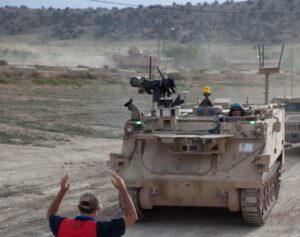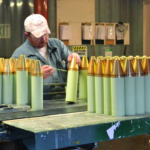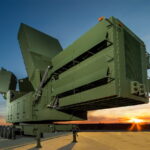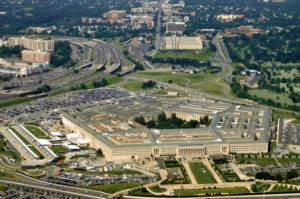
The Army has selected 10 firms to participate in a new small-business cohort looking for innovative ideas to apply sensor and remote tracking capabilities for sustainment of its future fleet of Robotic Combat Vehicles (RCV). Each company will receive $200,000 to work on their concepts over a 12-week period starting on August 3, before presenting their ideas to leaders from the Army’s Next-Generation Combat Vehicle Cross Functional Team and Project Manager Maneuver Combat Systems on October 22. Army officials will…

 By
By 










